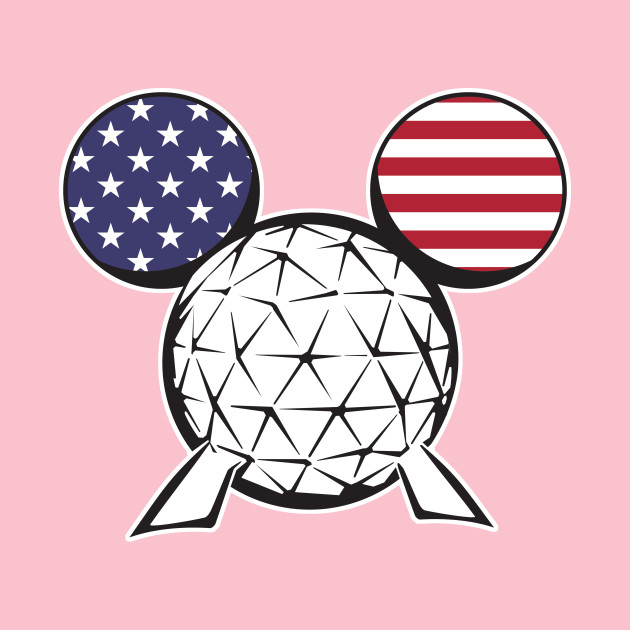Epcot Ball SVG: A Comprehensive Guide for Designers and Enthusiasts
Introduction
The Epcot Ball, an iconic symbol of the Walt Disney World theme park, has captivated visitors worldwide with its futuristic design and captivating lighting effects. For designers and enthusiasts alike, creating intricate SVG (Scalable Vector Graphics) representations of this architectural marvel offers a unique opportunity to showcase their creativity and passion. This comprehensive guide will delve into the intricacies of Epcot Ball SVG design, providing insights into its history, technical aspects, and creative applications.

Table of Content
- 1 Epcot Ball SVG: A Comprehensive Guide for Designers and Enthusiasts
- 1.1 Introduction
- 1.2 Historical Context
- 1.3 Technical Specifications
- 1.4 Creative Applications
- 1.5 Historical Context
- 1.6 Technical Specifications
- 1.7 Creative Applications
- 1.8 Design Considerations
- 1.9 Tutorials and Resources
- 1.10 Conclusion
- 1.11 Frequently Asked Questions
Historical Context
Technical Specifications
An Epcot Ball SVG is a vector-based representation of the geodesic sphere, composed of numerous triangles and polygons. These geometric shapes are defined by mathematical equations, allowing for precise scaling and manipulation without loss of quality. The complexity of the Epcot Ball’s geometry necessitates a high level of detail in the SVG file, resulting in a large file size.
Creative Applications
The versatility of Epcot Ball SVG files extends beyond their use as architectural renderings. Designers and enthusiasts have employed them in a myriad of creative applications, including:
- Logo Design: Incorporating the Epcot Ball into logos for companies or organizations related to technology, innovation, or entertainment.
- T-Shirt Graphics: Creating eye-catching T-shirt designs featuring the Epcot Ball as a focal point.
- Wall Art: Producing high-resolution prints of Epcot Ball SVG files for display as wall art in homes, offices, or public spaces.
- 3D Modeling: Utilizing Epcot Ball SVG files as the basis for 3D models, allowing for further exploration and visualization of the sphere’s geometry.

The Epcot Ball, an iconic symbol of the Walt Disney World theme park, has captivated visitors worldwide with its futuristic design and captivating lighting effects. For designers and enthusiasts alike, creating intricate SVG (Scalable Vector Graphics) representations of this architectural marvel offers a unique opportunity to showcase their creativity and passion. This comprehensive guide will delve into the intricacies of Epcot Ball SVG design, providing insights into its history, technical aspects, and creative applications.
- Castle With Mickey Head SVG Castle With Mickey Head SVG: A Symbol Of Magic And Childhood
- Elsa Frozen SVG Free Elsa Frozen SVG: Unveil The Enchanting World Of Ice And Magic
- Duck disney SVG Duck Disney SVG: A Comprehensive Guide To Enhance Your Designs
- Disney Family Vacation 2024 SVG Free H1: Plan An Unforgettable Disney Family Vacation In 2024 With Free SVG Designs
- Chillin Like A Villain Disney SVG H1: Chillin’ Like A Villain: Embracing The Dark Side With Disney SVGs
Historical Context
The Epcot Ball, also known as Spaceship Earth, was conceived as the centerpiece of the Epcot theme park, which opened in 1982. Designed by renowned architect Buckminster Fuller, the geodesic sphere symbolizes the journey of human communication and innovation. Its exterior panels feature a mosaic of images and symbols that narrate the story of human progress.
Technical Specifications
An Epcot Ball SVG is a vector-based representation of the geodesic sphere, composed of numerous triangles and polygons. These geometric shapes are defined by mathematical equations, allowing for precise scaling and manipulation without loss of quality. The complexity of the Epcot Ball’s geometry necessitates a high level of detail in the SVG file, resulting in a large file size.
Creative Applications
Design Considerations

Crafting a visually stunning Epcot Ball SVG requires attention to several design considerations:
- Accuracy: Ensure the SVG accurately represents the proportions and details of the actual Epcot Ball.
- Complexity: Balance the level of detail with the file size to maintain usability and performance.
- Color Accuracy: Use accurate color values to match the original Epcot Ball’s appearance.
- Lighting Effects: Incorporate lighting effects into the SVG to simulate the sphere’s illumination patterns.

Tutorials and Resources
Numerous online tutorials and resources provide guidance for creating Epcot Ball SVG files:
- Adobe Illustrator Tutorial: Step-by-step instructions on how to create an Epcot Ball SVG using Adobe Illustrator.
- SVG Editor Tools: Free and paid software options for editing and manipulating SVG files.
- Online SVG Generators: Tools that automatically generate SVG files based on specified parameters.
Conclusion
Epcot Ball SVG files offer a unique opportunity to capture the essence of this iconic architectural marvel. By understanding the history, technical aspects, and creative applications associated with Epcot Ball SVGs, designers and enthusiasts can create visually stunning representations of this symbol of innovation and human progress.
Frequently Asked Questions
Q: Where can I find free Epcot Ball SVG files?
A: Numerous websites offer free Epcot Ball SVG files, such as SVG Cut Files, The Hungry JPEG, and VectorMe.
Q: What software is recommended for creating Epcot Ball SVGs?
A: Adobe Illustrator is a popular choice for creating complex SVG files, but free and paid alternatives are available, such as Inkscape and CorelDRAW.
Q: How can I ensure the accuracy of my Epcot Ball SVG?
A: Reference high-quality images of the Epcot Ball and use precise measurements to create an accurate representation.
Q: What are the file size implications of creating a detailed Epcot Ball SVG?
A: The complexity of the Epcot Ball’s geometry results in large file sizes. Optimize the SVG by removing unnecessary elements and using compression techniques.
Q: How can I incorporate lighting effects into my Epcot Ball SVG?
A: Use gradient fills and layer masks to simulate the illumination patterns of the actual Epcot Ball.








